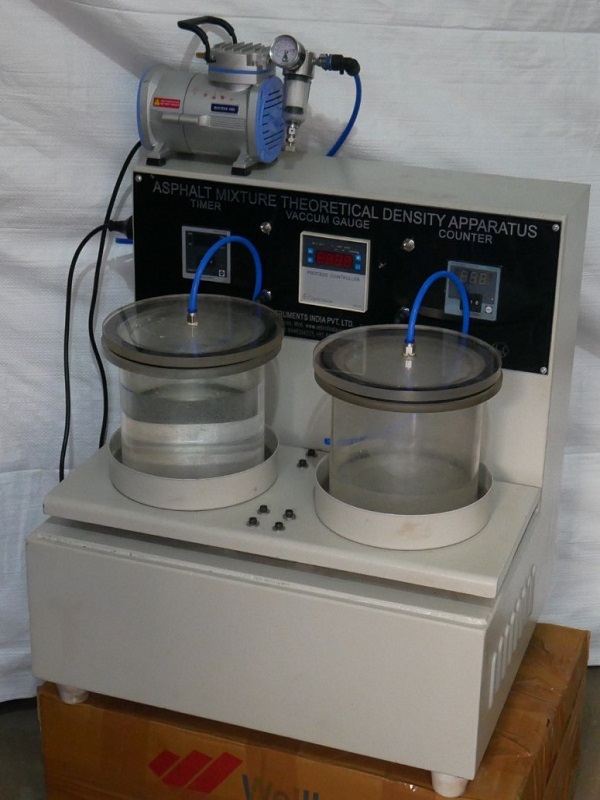Bitumen and Ashphalt Testing Lab Equipments



Asphalt Mixer Theoretical Density Meter
Business Type: Manufacturers, Exporters, Suppliers, Retailers, Wholesalers
Make: Setest India
Origin: India
Model No.: SET-1324
The construction industry is constantly evolving, and technological advancements have played a significant role in improving the quality and efficiency of construction projects. One such innovation in the field of asphalt mixing is the Asphalt Mixer Theoretical Density Meter with Vacuum Pump.
Asphalt is a key component in road construction, and its quality is crucial in determining the durability and performance of roads. Traditional methods of testing asphalt density were cumbersome and time-consuming, leading to delays and errors in construction projects. However, with the introduction of the asphalt mixer theoretical density meter with a vacuum pump, the process has become more accurate, efficient, and reliable.
The asphalt mixer theoretical density meter with a vacuum pump compliance with ASTM D2041-03 is a specialized instrument used to measure the theoretical maximum specific gravity (Gmm) of asphalt mixtures at different temperatures. It is an essential tool for quality control in the production of asphalt mixes, ensuring that they meet the required specifications.
The working principle of this meter involves combining a vacuum pump with a mixing bowl. The sample of asphalt mixture is placed in the mixing bowl and is subjected to a vacuum for a set period. This creates a negative pressure that drives out any trapped air bubbles within the mixture.
Air bubbles can significantly affect the density measurement of asphalt mixes, leading to inaccurate results. Therefore, the elimination of these bubbles through vacuuming ensures that the measurement is precise and reliable.
Once all the air bubbles have been removed, the sample's weight and volume are measured to calculate its theoretical maximum specific gravity. This value can then be compared to the Gmm of the asphalt mix design to determine its level of compaction and potential for moisture damage.
Specification:
- This equipment has a main body fitted with a vacuum transmitter,
- 2 nos. of vacuum containers made of acrylic pipe & a vibratory table under with complete control panel.
- The Vibratory table operates to release the entrapped air from the asphalt sample kept inside the vessels.
- It is suitable to work on 230 V AC single phase 50 Hz.
- Vacuum range 0-100 KPA (0-750 mm Hg)
- User can test 02 Nos. of samples at time.

